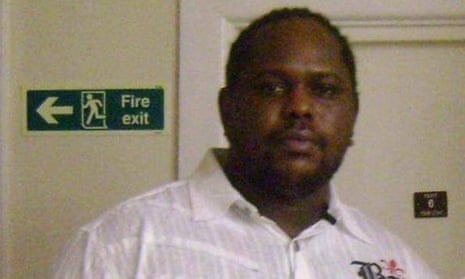A senior police officer cleared of misconduct over the high-profile death of a mentally ill black man is to face fresh disciplinary proceedings because of failings in the original case, the Observer can reveal.
After a misconduct meeting last year the officer – who has not been named – was told they had “no case to answer” over the death of Kevin Clarke, who was restrained by up to seven officers in south London in 2018.
Clarke’s family and the Independent Office for Police Conduct (IOPC) were, however, not notified about the hearing, where they would have been legally entitled to ask questions.
Now the officer – after initially refusing – has signed an order agreeing to have the high court quash the original verdict, paving the way for fresh disciplinary proceedings.
Clarke, 35, who was diagnosed with paranoid schizophrenia as a teenager, had been observed by police officers for 13 minutes while suffering a mental health episode as he lay on playing fields in Catford, south-east London. When he attempted to get to his knees he was restrained and handcuffed.
Police video reveals Clarke repeatedly told officers: “I can’t breathe.” An ambulance was called and Clarke was pronounced dead shortly after arriving at Lewisham hospital.
An inquest verdict last October concluded the decision to restrain Clarke was inappropriate and contributed to his death.
Cyrilia Davies Knight, solicitor for the Clarke family, said: “The family are pleased that the misconduct meeting will now take place again allowing them the opportunity to exercise their right to be present and ask questions.
“But it was outrageous that the officer initially disputed the application to quash the misconduct decision, despite knowing there was a clear breach in the regulations.”
His family also want other officers involved in the restraint of Clarke to face misconduct proceedings, saying they were “shocked and dismayed” this had not happened despite the evidence that emerged during the inquest.
The development in the Clarke case coincides with a submission of evidence into the UN’s investigation into “systemic racism” and rights violations committed by police against black people. Launched in the aftermath of the killing of George Floyd in Minneapolis, the submission by the charity Inquest argues that entrenched issues of racism and policing are also evident in the UK.
Clarke’s case is among a number, it says, that demonstrate law enforcement’s negative stereotyping of black people, noting that Clarke had displayed no signs of aggression towards officers who restrained him for 33 minutes.
The 22-page document refers to a recent survey that found 85% of black people in the UK did not believe they would be treated the same way by police as a white person.
Recent figures reveal that 7.7% of prisoners in England and Wales are black, despite being 3.4% of the population, and that black people are twice as likely as white people in the UK to die in custody.
Of those deaths in custody, the use of force is a feature in more than twice as many cases as other deaths in custody.
“Through an analysis of our casework, Inquest has identified that the racial stereotype of ‘big, black and dangerous’, ‘violent’ and ‘volatile’ when woven into the culture and practice of the police has been a recurring feature of deaths involving the use of force and restraint by police in the UK,” adds the submission.
Deborah Coles, director of Inquest, said: “The UK claims transparency for its law enforcement and legal processes but our work tells a different story. We see a repetition of deaths of black people in police custody, raising concerns about structural racism, state violence, neglect and impunity.”
Coles said she hoped the eventual UN report would make concrete recommendations to the UK.
The Met said that a senior officer had apologised for the failure to notify Clarke’s family of the misconduct meeting.
